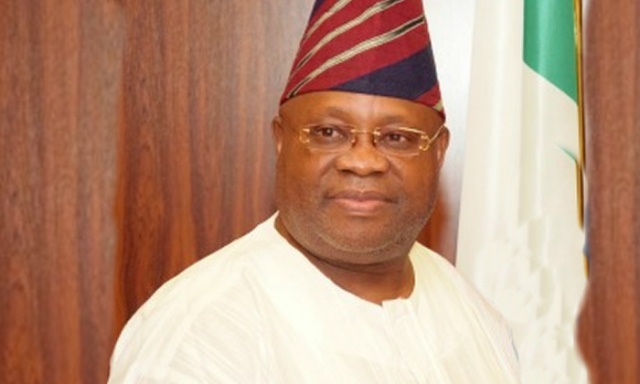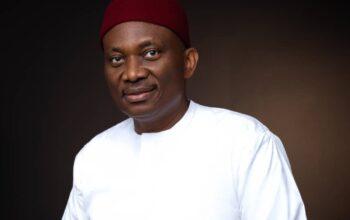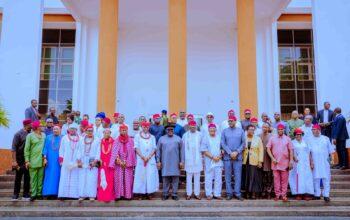For some time now, a lot of Nigerians have expressed concerns about the growing incursion of the judiciary into the decision-making on who leads the people. As against the known practice in democracy making the people the ultimate decider on who rules over their affairs, the judiciary in Nigeria is taking up that role.
This distortion of democracy is causing a whole lot of worries, and one of such was expressed by a former President of Nigeria, Goodluck Jonathan, who had during a visit to TOSTV Network studios in Abuja said “I have already made a public statement on that to the effect that ballot paper and not the judiciary should determine who wins elections or select political leaders. The ballot paper should be the only basis for selecting political leaders.”
And last Friday, the very disturbing trend that Jonathan canvassed against raised its ugly head in Osun state. Justice Tertse Kume who led the Osun election petition tribunal did the unthinkable as he went outside the dictate of his power in pronouncing a winner for the Osun election. The basis of the obscure and ridiculous judgment was that the elected Governor, Ademola Adeleke, did not score the majority of lawful votes after deducting votes in disputed polling units.
But that was not even what the law empowers him to do, assuming without conceding that his verdict on alleged over-voting was right. For the education of those who may not know, Section 51(3) of the Electoral Act 2022 stipulates that “Where the result of an election is cancelled in accordance with subsection (2), there shall be no return for the election untill another poll has taken place in the affected polling unit.”
In other words, the judgment of Justice Kume runs foul of the provision of the law. What the judgment did, in essence, was to shut the door to nearly one-third of the state from having a say in who will administer the state. By any stretch, it smears the real intent of democracy, and worse, a mockery of the law.
In Osun, the impression that the majority judgment gave to most people is that Justice Kume simply awarded the state to Gboyega Oyetola of the All Progressives Congress (APC) despite having lost at the poll. And this cannot be faulted considering the fact that the basis of the majority decision of the Tribunal was flawed and defied any sense of justice.
It should be unthinkable that a court would be a place to overturn the clear will of voters based on controversial evidence. Apart from the fact that the BVAS report relied upon by Justice Kume to make a decision has been disputed by the maker, the Independent National Electoral Commission (INEC), it is inconceivable that the accreditation data on the BVAS machines used for the election was ignored by the jury.
The BVAS machines were the device used at the various polling units to accredit voters. It is also a fact that BVAS machines were the originator of the accreditation data, and as such, the primary source of evidence to determine the true number of accredited voters for the election. Yet, Justice Kume went for a secondary source of evidence that is housed in faraway Abuja, which is susceptible to hacking and manipulations.
In short, Justice Kume turned a blind eye to the accreditation data on BVAS machines which were physically present at the polling units he ordered, and went for the accreditation data on a server not known to many of the voters in the election. It is like throwing away a chicken and embracing the egg she laid. Does that not foul of logic and justice?
What the decision of Justice Kume portrayed is an extreme partisan fervour targeted at robbing the people of their power to choose their leader. The implication of this would mean that the people do not need to take part in an election since whatever they decided on the ballot may not matter but the partisan instincts of the jury.
This will most likely put the decision on who leads on the judiciary, and not the people, as democracy was structured to operate. What this would therefore mean is that a judge would have unrestrained power to upturn election, especially when the winner is not someone he likes, as Justice Kume plainly demonstrated in his judgment by mocking Governor Ademola Adeleke.
To be frank, the threat posed to Nigeria’s democracy by the pronouncement of Justice Kume is far-reaching. The moment the judiciary becomes just another political tool, especially one used to hijack states by those who know how to manipulate it, it begins to lose any faith left in it by the people. No amount of legal fantasies can cover for an obvious plot to take away the power of the people in a democracy.
What just happened in Osun is a reminiscence of the 2018 mandate heist. While ‘remote control’ was the tool used to usurp the mandate of the people in 2018, now the least expected source, the judiciary is posing as the tool. It is time for the leadership of the judiciary to rise up and ensure the sustenance of the will of the people before compromised officers are used to steal away our democracy forever.
Sarafa Ibrahim writes from Iwo, Osun State.










